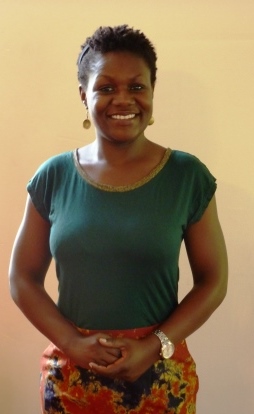PhD defence Belinda Okelo: Migrant Luo Rail and Port Workers and the Cartographies of colonial Mombasa, 1902-1950s
 On Tuesday 9 September at 14:30 CEST, Belinda Okelo will defend her dissertation Migrant Luo Rail and Port Workers and the Cartographies of colonial Mombasa, 1902-1950s.
On Tuesday 9 September at 14:30 CEST, Belinda Okelo will defend her dissertation Migrant Luo Rail and Port Workers and the Cartographies of colonial Mombasa, 1902-1950s.
Mombasa town has long been a forum for contact, and the portal for the transfer of goods, technology, and ideas between various groups of geographically distant actors. Notably, the town became a central player in the imperial expansionist project when Britain set out to export European institution models to Africa as part of the global expansion of a European international order. Mombasa’s positionality in the grand colonial project was informed by the existence of two key infrastructures: the Kenya–Uganda rail line and the Mombasa port. The rail and port were key factors influencing the production of colonial Mombasa’s urban outlook when the colonial state merged the productive forces of the colony and the protectorate and attempted to structure the modes of interactions of the actors at play. These features include a volatile wage labour economy, a town deeply divided along ethnic lines, and a town that was evidently dominated by the African labourer class. Using migrant Luo labourers as the unit of my analysis, this study aims to analyse how the Kenya Uganda Railway and Harbour labourers contributed to the manifestation of the defining features of colonial Mombasa in the years 1902–1950s.
Essentially, Okelo's study examines how the introduction of the Luo labourers into Mombasa’s distinct cultural space, revolutionised the town’s economic and social landscape to produce the features mapping out colonial Mombasa’s urbanity. This study is qualitative and based on the use of both primary and secondary data. The primary data used were mainly archival records sourced from the Kenya National Archives, the British National Archives in Kew, the Mill Hill Mission Archives in Oosterbeek Netherlands, and the digital archives of United Kingdom’s parliamentary proceedings. To place the individual experience in the grand narrative of the development of Mombasa’s colonial space, oral interviews were also conducted with principals and descendants of colonial era rail and port workers. The primary data was analysed and edited contrasted against an array of secondary data, which aided in juxtaposing the study against the theme of colonial expansionism and how it affected spatial mobility and the development of present outlooks of African urban spaces.
More information here.
Speaker

Belinda Okelo is a PhD candidate at the African Studies Centre Leiden. Her study area is African History, with a specific emphasis on Kenya’s labour history.
Belinda’s Master research focused on the development of African education in the colonial period, and it was during this study that she came to understand the complex interactions of African and British interests in the development of the British colonial enterprise. Building upon this knowledge, her current study focuses on labour migration and its role in the expansion of the British empire in East Africa and particularly in Kenya. This study is important in understanding migration and its effect on African urban spaces which are witnessing tremendous growth; growths that are often juxtaposed against troubled histories and strenuous experiences of colonialism and later, nation building. Her study articulates the processes of migration (for the colonialists) as a system of subjugation, control and accumulation; and migration (for Africans) as embodying conquest, and as forms of protests to register freedoms in repressed colonial spaces.

